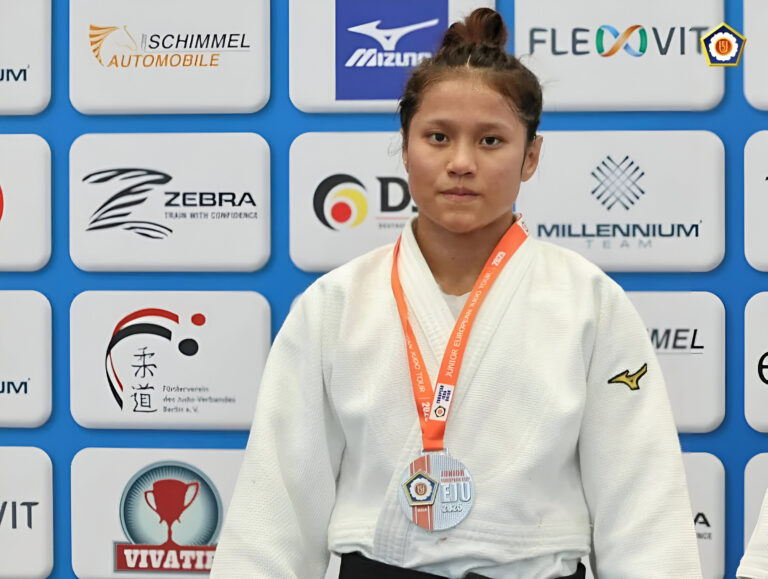MANIPUR’S THIRD LOK ADALAT SETTLES 298 CASES WITH ₹4.69 CRORE
Manipur’s third National Lok Adalat, held on 13 September 2025 across the High Court and district courts, successfully resolved 298 cases and recorded settlements totalling ₹4,69,31,411 out of 3,595 cases that were up for consideration (including pre-litigation matters and pending civil disputes). The Lok Adalat covered matrimonial disputes, MACT matters, bank recovery and negotiable instruments cases, utility bill disputes and land issues — and the Manipur State Legal Services Authority (MASLSA) said this is part of an ongoing push (including a 90-day mediation drive) to reduce backlog and speed up amicable resolutions.
What happened in Manipur — the headline facts
On September 13, 2025, Manipur held its third National Lok Adalat of the year. Officials report:
- 298 cases settled by mutual agreement.
- Total settlements amounting to ₹4,69,31,411 disbursed or agreed upon.
- 3,595 matters were listed for the Lok Adalat (a mix of pre-litigation matters and pending civil cases).
- The sittings ran across the High Court and District Courts (Lamphel Court, Thoubal Court complex among them), with supervision and visits by senior judges including Justice A. Bimol Singh and Justice A. Guneshwar Sharma.
What types of disputes get settled — and what was on the Manipur docket?
The typical Lok Adalat docket is broad and practical — aimed at disputes that can be compromised rather than criminal cases that require full trial:
- Matrimonial disputes (alimony, maintenance, separation settlements).
- MACT (Motor Accident Claims Tribunal) cases — compensation claims that can be negotiated.
- Bank recovery and negotiable instrument cases (cheque bounce disputes under NI Act)
- Utility bills (electricity, water, telephone) and other consumer dues.
- Land acquisition and property matters that lend themselves to settlement.
In Manipur’s session, these categories made up the bulk of the 3,595 matters referred for resolution — and 298 of them resulted in settlements. That mix explains both the social value (fixing family rows, helping accident victims) and the economic value (clearing outstanding recoveries and compensation).
Who made it happen — the institutional mechanics and leadership
The Lok Adalat framework runs on coordination: MASLSA, the High Court Legal Services Committee and District Legal Services Authorities (DLSAs) organize benches, rosters, mediators and volunteers. In Manipur’s event:
- Justice A. Bimol Singh (High Court of Manipur) served as Executive Chairman of MASLSA and visited sittings; his presence underscores judicial backing and oversight.
- Senior judges and district officials visited courts (Lamphel and Thoubal complexes), which helps move parties toward settlement by showing institutional commitment.
The bigger push: 90-day mediation campaign and why it matters
Manipur’s Lok Adalat sits within a broader, time-bound push: the Supreme Court’s direction for a 90-day special mediation campaign (“Mediation for the Nation”) to clear pending cases across High Courts and district mediation centres. The aim: reduce pendency through active mediation and local campaigns to bring parties to the table. Manipur’s authorities explicitly referenced this, and they’ve scheduled the next National Lok Adalat for 13 December 2025 as part of the yearly four-time cycle.
Frequently Asked Questions
Q1: What is a National Lok Adalat and how often is it held?
A1: A National Lok Adalat is a nationwide sitting organised by the National Legal Services Authority (NALSA) along with State Legal Services Authorities and district bodies to resolve large numbers of disputes amicably. India typically schedules four National Lok Adalats a year, supplemented by state and district Lok Adalats and special mediation drives.
Q2: Are Lok Adalat awards legally binding and can they be appealed?
A2: Yes — awards passed by Lok Adalats are deemed to be decrees of a civil court and are final and binding on parties. Generally, there is no appeal from a Lok Adalat award; however, a party dissatisfied with a settlement may, in some circumstances, initiate fresh litigation in an appropriate court (but not appeal the Lok Adalat award itself).
Q3: What kinds of cases cannot be taken up by Lok Adalat?
A3: Lok Adalats typically do not take up non-compoundable criminal offences and matters where a public trial is necessary. They focus on civil disputes, matrimonial matters, MACT claims, negotiable instrument cases, and other compoundable matters or pre-litigation disputes.
Q4: If my case is listed but I want to go to full trial instead, what can I do?
A4: Participation in a Lok Adalat is voluntary. If you’re unwilling to settle, you can choose not to compromise. However, if you enter a settlement, it becomes final. If you are unsure, seek legal advice beforehand — MASLSA and DLSAs provide free legal aid and counselling to help you decide
Q5: What does Manipur’s ₹4.69 crore settlement figure tell us about the Lok Adalat’s impact?
A5: It signals immediate financial relief and enforcement for litigants — money that might otherwise have been locked up in years-long litigation. It also indicates the Lok Adalat’s role in clearing wallet-related disputes (bank recoveries, MACT awards, utility dues) and reducing docket pressure in regular courts — a concrete measure of ADR’s social and economic value.



